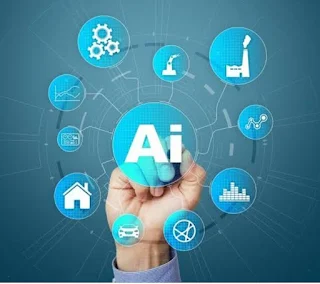As artificial intelligence (AI) continues to advance at a rapid pace, its integration into various industries poses both exciting opportunities and daunting challenges. One of the most pressing concerns is the potential displacement of jobs in the technology sector as AI takes on more tasks traditionally performed by humans.
Automating Routine Tasks
The advancement of artificial intelligence (AI) poses a significant challenge to jobs reliant on repetitive and routine tasks. AI-powered systems are increasingly capable of automating tasks such as data entry, basic analysis, and customer service interactions. As chatbots equipped with natural language processing take over basic customer inquiries, traditional roles in customer service may see a decline.
Algorithmic Decision-Making
AI-driven algorithms are reshaping roles in data analysis and decision-making processes. Professions like financial analysis could witness changes as AI systems analyze market trends and offer investment recommendations. Similarly, in software development, the automation of coding tasks through AI tools may impact the demand for manual coding labor.
Robotics and Automation
Advancements in robotics, coupled with AI capabilities, threaten traditional roles in manufacturing and logistics. Robots equipped with AI algorithms excel in precision tasks, potentially reducing the need for human labor in assembly lines and warehouses. This shift could lead to significant changes in workforce composition in these industries.
Emergence of New Opportunities
While AI may displace certain jobs, it also creates new opportunities and roles. The development, maintenance, and supervision of AI systems require specialized skills, leading to the emergence of job categories such as AI engineers, data scientists, and machine learning specialists. These roles are crucial for leveraging AI technologies effectively.
Augmenting Human Capabilities
AI has the potential to augment human capabilities, leading to more efficient workflows across various industries. In healthcare, AI-powered diagnostic tools assist medical professionals in making accurate diagnoses and treatment recommendations, ultimately improving patient outcomes. This synergy between AI and human expertise is key for realizing the full potential of technology.
Investing in Education and Training
Addressing the challenges of AI-driven job displacement requires proactive investment in education and training programs. Upskilling and reskilling the workforce are essential for adapting to the evolving job market and leveraging the opportunities presented by AI. By equipping individuals with the skills needed to work alongside AI technologies, we can ensure a smooth transition and equitable distribution of benefits.
In conclusion, while the integration of AI into the technology sector may disrupt traditional employment patterns, it also offers opportunities for innovation and growth. By understanding the implications of AI-driven automation and investing in human capital, we can navigate the changing landscape of work and harness the full potential of artificial intelligence.
